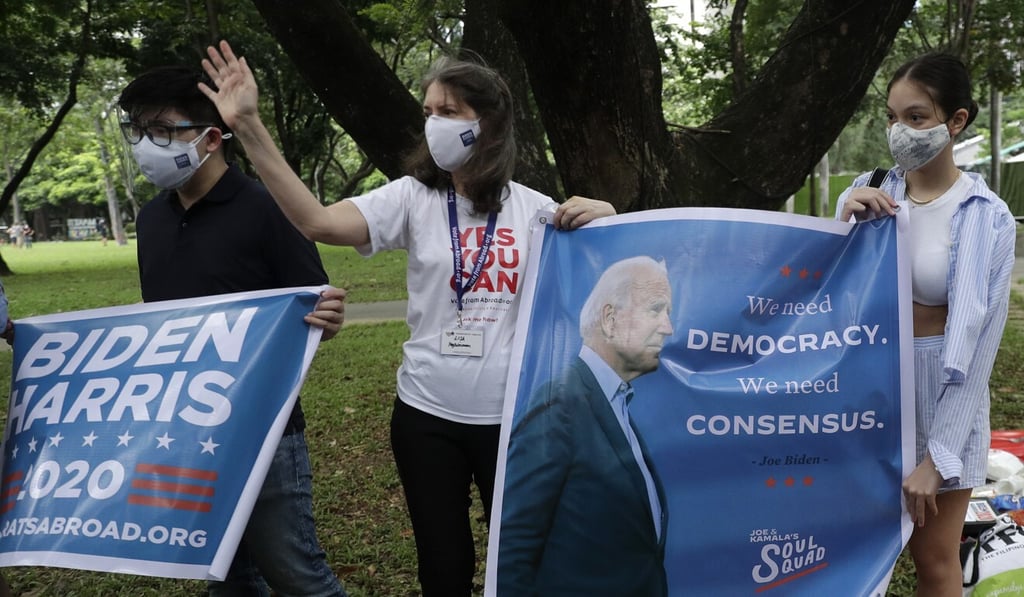Joe Biden won’t soften US stance on South China Sea, experts say
- While his administration will be more civil than Trump’s, Washington will continue freedom of navigation operations in the disputed waterway, analysts say
- Biden has over the years become increasingly critical of Beijing, calling President Xi Jinping a ‘thug’ and attacking China’s actions in Hong Kong and Xinjiang

“Given Biden’s background [as a veteran lawmaker], we will see more heads brought to bear on the problems worldwide,” said Professor Jay Batongbacal, director of the University of the Philippines Institute for Maritime Affairs and Law of the Sea, at a virtual forum on Monday organised by the Foreign Correspondents’ Association of the Philippines.
The US alliance with Japan and South Korea would be “less antagonistic” under Biden, whose officials were likely to hold “informal talks over coffee” with stakeholders to “come up with a strategy to push back” against China, said Thayer, emeritus professor of politics and visiting fellow at the University of New South Wales.
Both experts said Washington was likely to continue its policy of holding freedom of navigation operations (FONOPS) in the South China Sea, and also to deepen efforts to include the Philippine-held Kalayaan Island Group in the contested waterway by expanding the definition of the word “Pacific” in the US-Philippine-Mutual Defence Treaty (MDT).

Under the pact, signed in August 1951, an armed attack “on the island territories under its jurisdiction in the Pacific Ocean, its armed forces, public vessels or aircraft in the Pacific” would trigger a mutual response of aid.